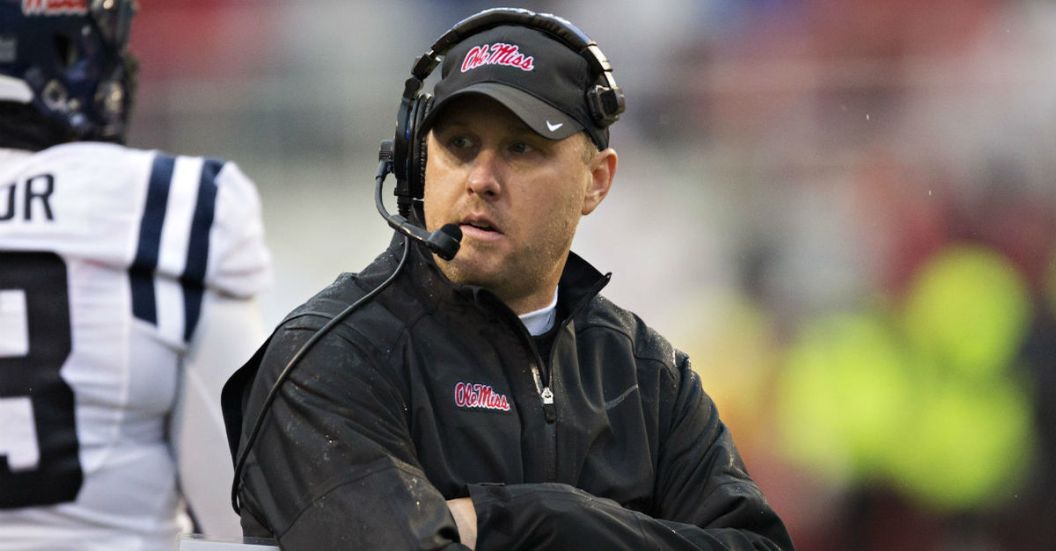If the NCAA enforcement staff committee report is any indication, Ole Miss is in a heap of trouble.
Videos by FanBuzz
The staff issued a blistering report that examined each of the alleged 21 violations against the football program. In short, the staff said it found Ole Miss in non-compliance.
The entire report is on the Scribd website and can be read here. But in a series of tweets, Dennis Dodd, the national football reporter for CBS sports, broke down a number of the more eye-opening statements:
"Obviously, something was wrong at," Ole Miss. -NCAA
— Dennis Dodd (@dennisdoddcbs) August 10, 2017
"Even on large campus ... unusual to see serious nature of violations," at Ole Miss. -NCAA
— Dennis Dodd (@dennisdoddcbs) August 10, 2017
Ole Miss atmosphere "was anything but compliant" -- NCAA
— Dennis Dodd (@dennisdoddcbs) August 10, 2017
NCAA on Freeze: Freeze "unable to demonstrate ... the legislated obligations of a head coach."
— Dennis Dodd (@dennisdoddcbs) August 10, 2017
You never want to see from the NCAA in its reply to your school "X ... accepted $10,000 in cash in a wad of one-hundred dollar bills."
— Dennis Dodd (@dennisdoddcbs) August 10, 2017
Ole Miss has already announced it would be self-imposing a one-year postseason ban for the 2017 season. Ole Miss will also be contesting some of the charges against them, which include lack of institutional control.
Ole Miss originally received a notice of allegations back in January of 2016, which detailed almost 30 NCAA violations from all of Ole Miss' programs. 13 of those violations were tied to the football program, some of which stem from Houston Nutt's tenure at the school from back in 2012.
Others come from the Laremy Tunsil fiasco that started back in the summer of 2015 when Tunsil was arrested for a domestic dispute. Tunsil was never charged in that dispute, but comments his stepfather made led to more investigation into the program that may have led to unrelated sanctions for Ole Miss.
Ole Miss has put together a thorough and lengthy response to NCAA allegations, as the university released a 100-plus page document that defends itself. Within the confines of that document (which can be seen here), the university takes a direct step to indicate that institutional control was not lost during the process with regard to the football program.
Most importantly, the University contests the allegations concerning institutional control and head coach responsibility (Allegations Nos. 20-21). The University has consistently satisfied each of the four pillars of institutional control: (1) "adequate compliance measures exist"; (2) "they are appropriately conveyed to those who need to be aware of them"; (3) "they are monitored to ensure that such measures are being followed"; and (4) "on learning of a violation, the institution takes swift action."
